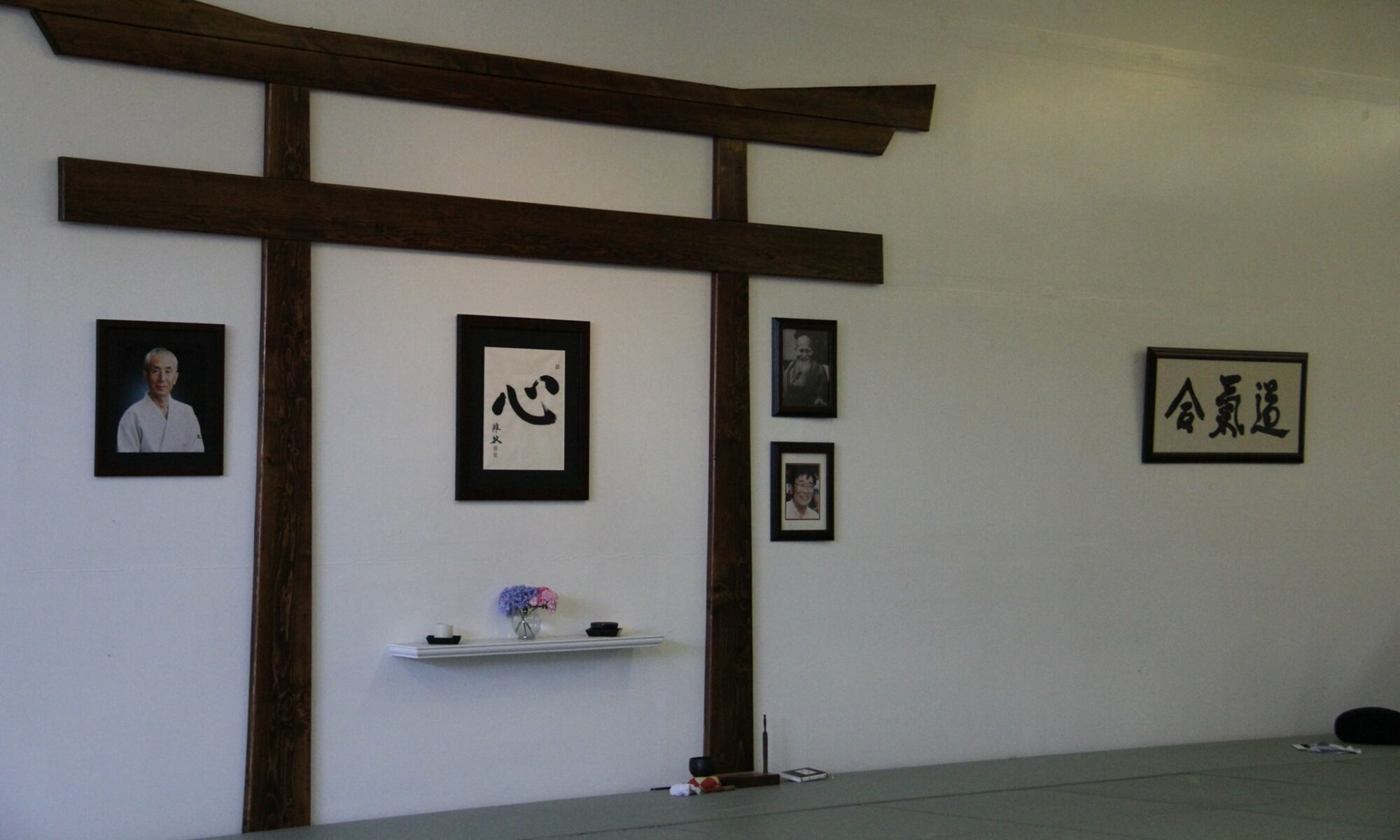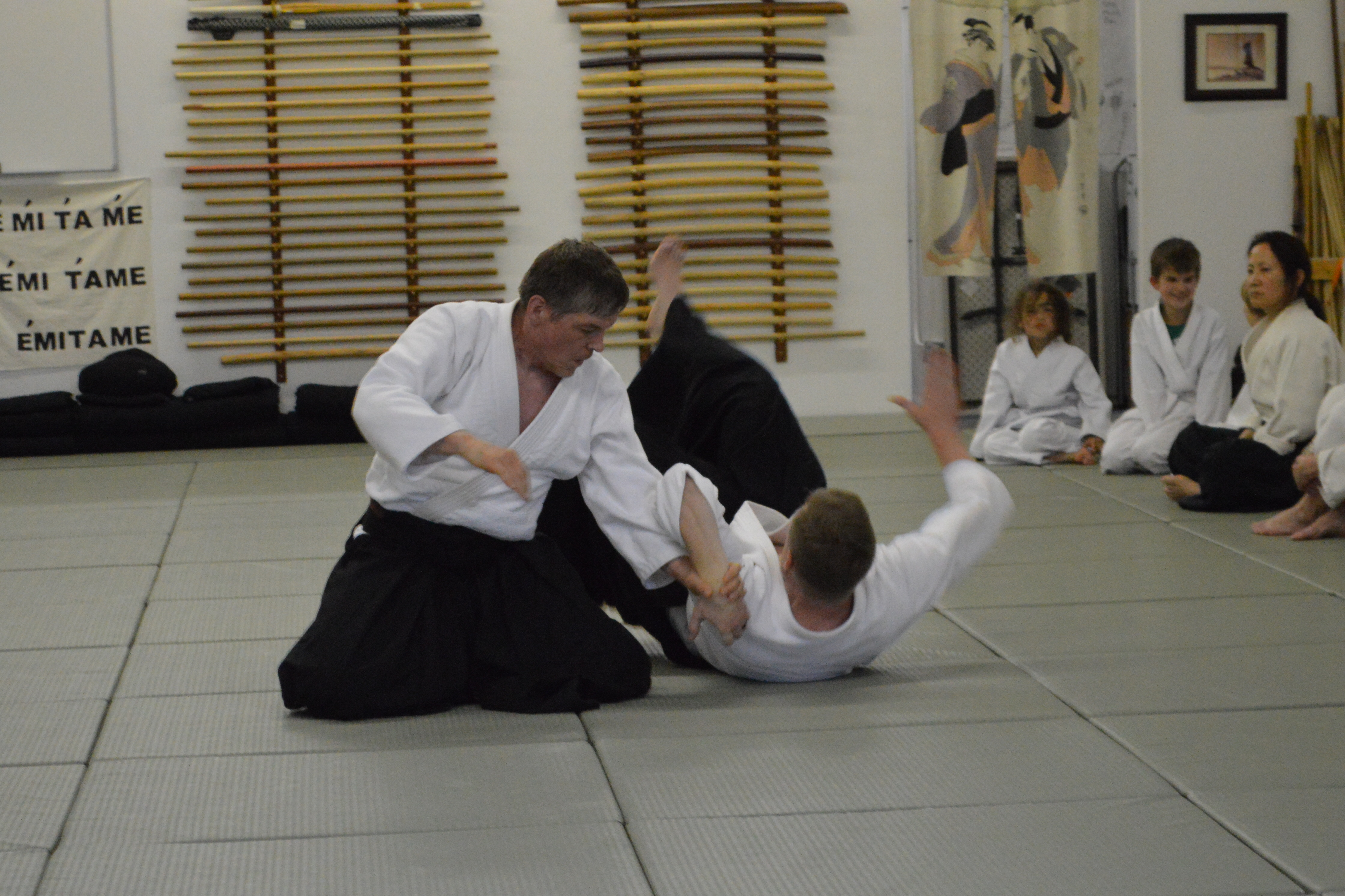We come to our dojo to train so that we’re better able to apply the principles of aikido in our daily lives.
Aikido or Aikijujutsu? Our practice at Aikido Olympia revolves around an idea that Aikido is “A way of being in harmony with the energy of the universe”. On the surface, that sounds like we are applying harmony in a martial way. However, there’s an important nuance when we say “a way of being”. Our art is about how we, as individuals, interact with everything around us. To put a finer point on this, our practice is about how we behave differently and lead our lives better, not about how we make others behave.
Considering the martial arts world, there are ways we can organize practices. In our specific martial lineage of Aiki – “being in harmony”, there are basically two main approaches. One is the “Do”- the way, and the others are “jutsu” – the arts or techniques. What is not always apparent to students of these marital arts is that in Aikido, our techniques and training are designed to change ourselves. Alternatively, in Aikijujutsu the techniques and training are designed to help the practitioner more efficiently affect another person’s behavior. Both use similar principles and even look similar, but intent differs.
In the martial arts world, some contend that practicing martial arts is only valuable if it focuses on building one’s ability to dominate others. Others take a perspective that martial arts are primarily for self-improvement. Our contention is that these practices all coexist, and that people should do what they believe will help them be the best person they can be. Personally, I don’t have a lifestyle that brings a lot of violence my direction. However, I have a high-stakes career that requires me to embody integrity, humility, relaxation, centeredness, and intent while facing a continuous stream of demands, challenges, struggles, (sometimes law suits) and opportunities. So, for me, training diligently in Aikido adds substantial value and as we all develop together, I hope we can continue to help each other find the way through our practice and become even better versions of ourselves.
By Nate Weed


